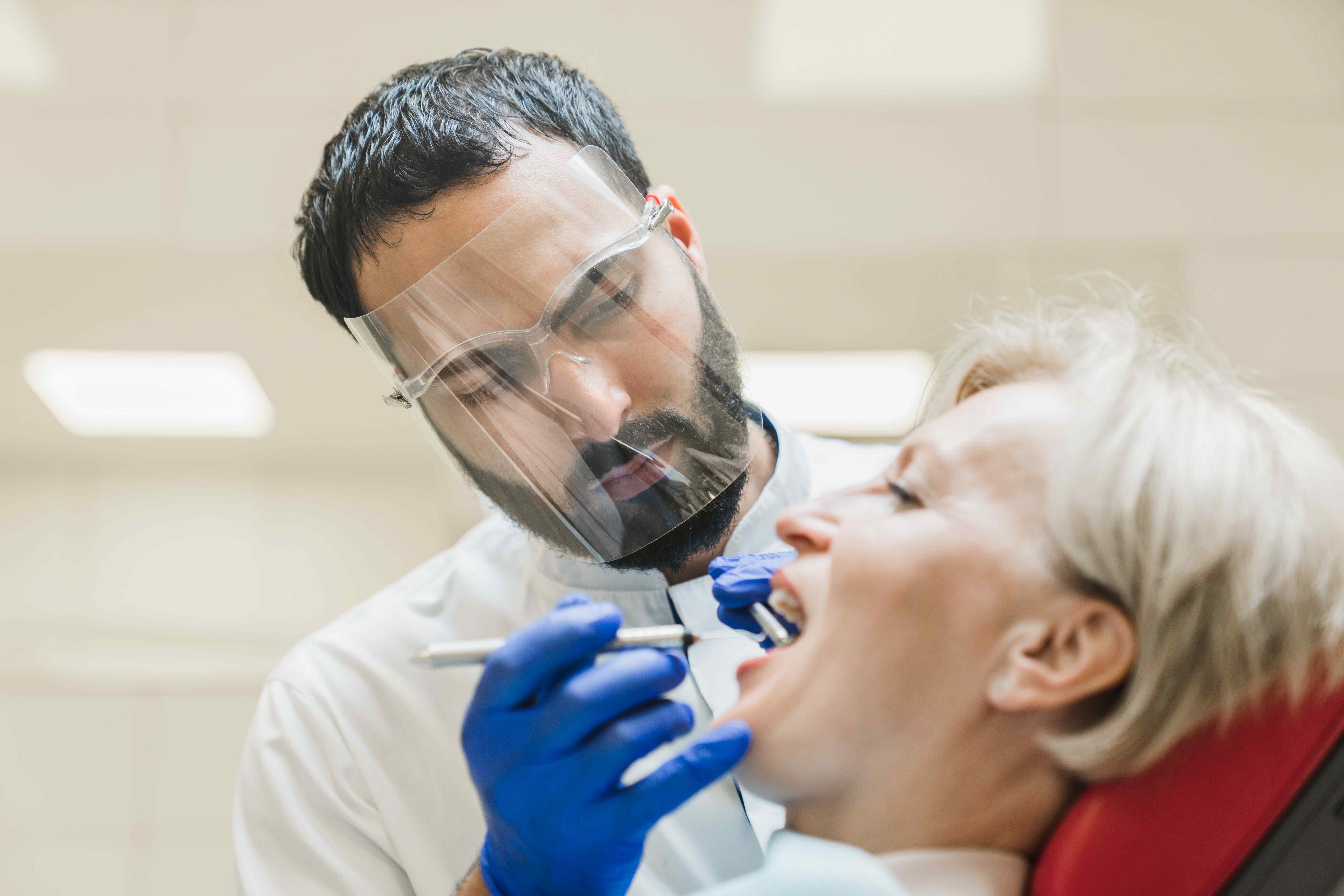Maintaining healthy gums involves more than just brushing, flossing, and regular dental visits. Increasing evidence…

A Healthy Smile At Any Age: The Importance of Lifelong Dental Care
Having a healthy and beautiful smile is something we strive for throughout our lives. Yet, it can be easy to forget just how much work goes into achieving and maintaining that perfect smile. Lifelong dental care is an essential part of living a healthy and happy life, and it is important to understand the different phases of tooth development throughout our lives. From baby teeth to adult teeth, wisdom teeth, and beyond, each stage of life comes with its own unique set of tooth-related challenges and issues. In this blog post, we’ll explore the importance of lifelong dental care and the various tooth replacement options available for older adults. With the right knowledge and care, you can keep your smile looking its best for years to come.
The Basics of Teeth: Baby To Adult
Tooth development begins long before we ever see a single tooth in our mouth. It starts during pregnancy, when the tooth buds begin to form in the baby’s jaw. These tooth buds eventually develop into primary or “baby” teeth, which usually start to erupt between the ages of 6 months and 1 year.
Baby teeth serve several important functions. They help children chew food, speak clearly, and guide the eruption of permanent teeth. As a parent, it’s important to start dental care for children early on. Even before the first tooth erupts, you can gently clean your baby’s gums with a soft cloth or infant toothbrush.
As your child grows, their baby teeth will start to fall out, making way for the permanent teeth. This transition usually begins around the age of 6 and continues into the early teenage years. It’s crucial to maintain good dental care during this time, as the permanent teeth need a healthy foundation.
As we reach adulthood, our permanent teeth should be fully developed and in place. However, dental care for older patients is just as important as it is for children. Regular brushing, flossing, and dental check-ups are essential to maintain the health and longevity of our teeth.
Understanding the basics of tooth development from baby teeth to adult teeth is key to maintaining a healthy smile throughout our lives. By taking care of our teeth from an early age and continuing with good oral hygiene habits as we grow older, we can ensure a lifetime of healthy smiles.
Common Issues and Prevention Tips for Adult Teeth
As adults, it’s crucial to prioritize our dental care to ensure a healthy and beautiful smile. However, there are some common issues that adults may face when it comes to their teeth.
One of the most prevalent problems is tooth decay. As we age, our tooth enamel can become worn down, making our teeth more susceptible to cavities. To prevent this, it’s essential to brush your teeth twice a day with fluoride toothpaste, floss daily, and visit Felton Dentistry regularly for cleanings and check-ups.
Another issue that adults often experience is gum disease. Poor oral hygiene, smoking, and certain health conditions can increase the risk of gum disease. To prevent gum disease, be sure to practice good oral hygiene, avoid smoking, and visit your dentist if you notice any signs of gum disease, such as red or swollen gums, bleeding while brushing, or persistent bad breath.
Tooth sensitivity is also a common issue for adults, often caused by worn tooth enamel or receding gums. To alleviate sensitivity, try using a toothpaste specifically designed for sensitive teeth and avoid consuming foods and beverages that are too hot or cold. By taking proactive measures and staying on top of your oral health, you can prevent these common issues and maintain a healthy smile throughout your adult life.
Wisdom Teeth
The arrival of wisdom teeth can be a mysterious and sometimes uncomfortable experience for many people. These third molars typically erupt between the ages of 17 and 25, hence their name. However, not everyone will develop wisdom teeth, and those who do may experience various challenges.
When wisdom teeth begin to emerge, it can cause discomfort, pain, and swelling. This is because there is often limited space in the mouth, leading to impaction or the teeth becoming trapped beneath the gums. Impacted wisdom teeth can cause infection, damage to neighboring teeth, and even cysts or tumors in rare cases.
To prevent these complications, dentists often recommend removing wisdom teeth before they fully emerge or cause problems. The extraction procedure is typically done under local anesthesia, and recovery time can vary depending on the complexity of the extraction.
It’s important to consult with a dentist or oral surgeon to determine the best course of action for your specific situation. They will be able to assess the position of your wisdom teeth, discuss any potential risks, and recommend the most appropriate treatment.
Remember, while the arrival of wisdom teeth can be mysterious and sometimes uncomfortable, seeking professional advice and timely intervention can help prevent further complications and ensure the health and well-being of your smile.
Replacing Missing Teeth: Options for Older Adults
Tooth loss can occur for various reasons, such as decay, injury, or aging. Fortunately, there are several tooth replacement options available for older adults to restore their smiles and maintain proper oral function.
Implants are a popular and long-lasting option for replacing missing teeth. They consist of a titanium post that is surgically implanted into the jawbone, serving as a stable foundation for a crown. Implants not only look and feel like natural teeth but also stimulate the jawbone, preventing bone loss.
Dentures are removable appliances that replace multiple missing teeth. They can be complete dentures, which replace all the teeth in the upper or lower jaw, or partial dentures, which replace only a few missing teeth. Dentures provide a functional and aesthetic solution for those who have lost most or all of their natural teeth.
Bridges are another tooth replacement option for older adults. They consist of one or more artificial teeth anchored to adjacent healthy teeth or implants. Bridges restore the appearance and function of missing teeth and help maintain proper tooth alignment.
When considering tooth replacement options, it’s important to consult with a dentist to determine the best solution for your specific needs. They will evaluate factors such as oral health, bone density, and budget to recommend the most suitable option.
Remember, no matter which tooth replacement option you choose, proper oral hygiene and regular dental check-ups at Felton Dentistry are crucial to maintaining the longevity and health of your new teeth. With the advancements in dental technology, older adults can enjoy a beautiful and functional smile for years to come.
How To Maintain a Healthy Smile at Any Age
Taking care of your oral health is essential at every stage of life. From childhood to old age, maintaining a healthy smile requires lifelong dental care. Here are some tips to help you maintain a beautiful and healthy smile at any age.
First and foremost, practice good oral hygiene. Brush your teeth twice a day with fluoride toothpaste and floss daily to remove plaque and prevent cavities. Additionally, make sure to visit your dentist regularly for professional cleanings and check-ups. These routine visits allow your dentist to catch any potential issues early on and provide necessary treatments or interventions.
It’s also important to pay attention to your diet and lifestyle choices. Limit your intake of sugary foods and drinks, as they can contribute to tooth decay. Avoid smoking or using tobacco products, as they can lead to gum disease and oral cancer. Drinking plenty of water and eating a balanced diet rich in fruits, vegetables, and lean proteins can also support overall oral health.
Furthermore, protect your teeth from injury by wearing a mouthguard during contact sports or activities that pose a risk of dental trauma. And don’t forget to replace your toothbrush regularly, as worn bristles are less effective at cleaning your teeth.
Lastly, be aware of any changes or abnormalities in your mouth, such as persistent bad breath, tooth sensitivity, or changes in the appearance of your gums. If you notice anything unusual, don’t hesitate to schedule an appointment with your dentist.
By following these tips and prioritizing your dental care, you can enjoy a healthy smile throughout your life. Remember, a beautiful smile goes hand in hand with overall well-being, so make sure to give your teeth the attention they deserve. Schedule an appointment with the dental experts at Felton Dentistry today!


